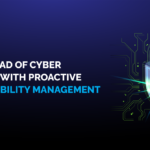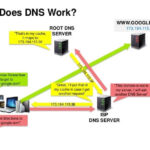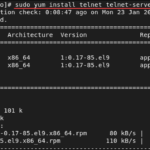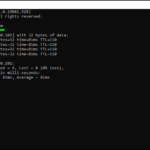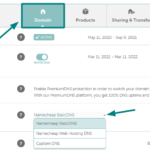
Despite businesses and individuals implementing secure computing practices, hacker breaches targeting both corporate and personal data continue to escalate, underscoring significant gaps in cybersecurity expertise. To address this, NukuDo, a cybersecurity workforce developer, is tackling these gaps by offering specialized training programs that guarantee employment in the field of computer security.
The U.S. is grappling with a wave of major data breaches, such as the theft of all U.S. Social Security numbers, cyberattacks from the Chinese government on internet providers, and Iranian intrusions into presidential campaign systems. These breaches highlight the country’s ongoing cybersecurity challenges, including a shortage of 400,000 specialists, despite efforts to recruit more talent.
For instance, a hacker known as USDoD allegedly stole personal data from National Public Data, an online background check provider, compromising the full names, former addresses, and complete personal details of 2.9 billion people spanning 30 years. Recently, Chinese-backed hackers infiltrated U.S. internet service providers to spy on users.
Two persistent obstacles companies face in securing their digital infrastructure are the lack of cyber skills among current IT staff and the shortage of qualified job candidates to strengthen cybersecurity teams. To address these challenges, Michael Blair, managing director of NukuDo, launched a training program that bridges the gap.
Blair’s program offers qualified candidates a six-month, paid training experience at $4,000 per month, along with a 401(k) and full healthcare coverage. Following completion, participants are guaranteed a three-year job placement. The hands-on training is open to a broad range of applicants, including recent high school graduates, providing both learning and employment opportunities.
“We aim to revolutionize cybersecurity training. Our approach is fundamentally different,” Blair told TechNewsWorld.
A Proven Model Extends Beyond Traditional Academia
The training facility in San Antonio is designed to equip cybersecurity trainees with the practical skills that employers find lacking in traditional academic graduates, Blair explained. With experience recruiting and training companies in the U.S. and abroad, Blair was influenced by a sister company in Singapore, Red Alpha, which has been operating for four years. NukuDo’s first training class kicked off in March.
Blair shared a recent conversation with a Chief Information Security Officer (CISO) who expressed that many of his cybersecurity team members could only follow a checklist, not think critically in the face of evolving threats.
“That’s not what the industry needs,” Blair remarked, stressing the demand for more skilled cybersecurity professionals to fill the growing number of vacancies.
The training program Blair expanded from Red Alpha addresses the growing need for skilled cybersecurity professionals. In Singapore, Red Alpha has successfully trained approximately 180 individuals over the past four years, achieving an impressive 100% job placement rate for its graduates.
For NukuDo’s first training class in March, Blair received 5,000 applications, from which he selected about 15 candidates. As the training program concludes, all of the trainees are in the process of obtaining industry certifications.
“Our acceptance rate is less than 1%, but that’s crucial because it allows me to find the right people who are truly worth investing in,” Blair explained.
Aligning Training, Education, and Employment
Blair believes the success of his cybersecurity training method stems from aligning three key players: the individuals seeking to enter the industry, the education provider offering the relevant skills, and the employers looking to hire.
He compares his operational model to the military’s recruitment process, saying, “Who else will recruit, train, and give you your first job?”
“We’ve simply found a way to make this work for the private sector,” he continued. “What makes us unique as an education provider is that we’re not part of the armed services.”
Blair hires the selected trainees as employees of NukuDo, paying them a salary. As trainees, they commit to working for NukuDo for up to three years, with NukuDo helping them secure their first job. “This is what I call a new co-employment model. I don’t sell software, and I don’t have stock. What I do is bring people to companies, and those companies essentially get what could be called the world’s longest job interview,” Blair explained.
During this on-the-job experience, NukuDo helps employers mitigate hiring risks in cybersecurity.
“They’re employees of ours. We pay them a salary and provide benefits. It’s an incredible arrangement,” Blair added. “I remain the W2 of record, so our business partners — the companies that employ our graduates — pay us for their services. One check covers everything, including professional development.”
Every six months, Blair brings his trainees back for a week of upskilling, staying in close communication with the employers throughout the process.
Complementing Traditional Cybersecurity Education
Blair views his role as complementing the industry’s need for qualified professionals. While NukuDo and Red Alpha are separate companies with distinct operations, they share a parent company and collaborate closely.
Blair is not attempting to replace traditional academic programs in cybersecurity. He believes universities will always play an essential role in providing foundational knowledge, particularly in areas like governance.
“For us, though, it’s about equipping our hires with the hands-on, operational skills they need to succeed when they hit the keyboard to defend and protect customer data,” Blair said.











